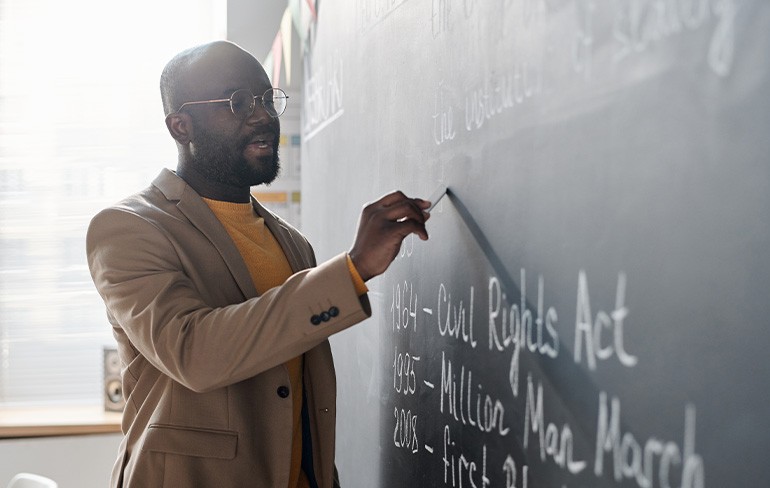Although the contributions of African Americans should be celebrated all year, February has been dedicated as Black History Month, when we honor the achievements of black individuals and how they’ve helped shape our society. Why do we study Black History, and why is it essential to our education system?
First of all, Black History is part of America’s history as a whole. When we choose to exclude it, we are omitting a piece of history. We cannot tell the story of America without honoring those who have helped build this country. It is also important because it provides context for how we got to where we are today and a deeper understanding of the issues we still face in this country.
When students learn about African Americans’ positive contributions, it also gives them an appreciation of today’s African Americans.
But Black History goes far beyond MLK and Rosa Parks and beyond the creation of the United States. Black History goes as far back as the early 17th century when Africans were brought to the American colonies. After a Dutch ship brought 20 Africans ashore at the British colony of Jamestown, Virginia, in 1619, slavery spread quickly. Historians have estimated that 6 to 7 million enslaved people were imported to the New World during the 18th century alone. Teaching this history empowers black students and creates a meaningful connection to the past and their ancestors.
 You’ve heard the phrase that history tends to repeat itself, which is why the subject of history, in general, is critical to teach young people. Many of the issues we have today stem from unresolved issues in the past. It’s important for the younger generations to understand that while progress has been made, the fight for equal rights and equal treatment continues.
You’ve heard the phrase that history tends to repeat itself, which is why the subject of history, in general, is critical to teach young people. Many of the issues we have today stem from unresolved issues in the past. It’s important for the younger generations to understand that while progress has been made, the fight for equal rights and equal treatment continues.
The fact that we still see race-related crimes happening in our country shows we still have a lot of work to do. The conversation of race begins in a classroom by giving students the knowledge and resources to understand our past and what brought us to where we are.
Last week, Medcom hosted a Lunch & Learn for our employees, where we discussed the importance of black history and the accuracy of how it is taught in schools. We also had a guest speaker Claresa Baggs who spoke on being uncomfortable and pushing through it so that we as a society can progress.
Every person has their own history, and when we take the time to learn about each other’s history, we become more empathetic human beings and realize that we are more similar than we are different.
Further Reading
Every year, there is a theme for Black History Month. This year it is “Black Resistance.” Check out these reads that embrace this year’s Black History Month theme: https://bit.ly/BlackResistanceReadingList.
Find more Black History Month books on the Good Housekeeping website.





